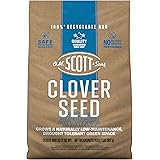Best Choice Products 8x4x2ft Outdoor Metal Raised Garden Bed, Deep Root Planter Box for Vegetables, Flowers, Herbs, and Succulents w/ 478 Gallon Capacity - Gray
33% OffZSYWODFO 48x24x30in Raised Garden Bed,Elevated Wooden Horticulture Planter Box with Legs Standing Growing Bed for Backyard/Patio/Gardener,210lb Capacity-Natural
6% OffComposting is a great way to reduce waste and create nutrient-rich soil for your garden. It’s also an eco-friendly activity that can help you save money on fertilizers and pesticides. If you’re new to composting, this beginner’s guide will teach you everything you need to know to get started.

What Is Composting?
Composting is the process of breaking down organic matter into rich, dark soil. This happens naturally in nature but can be accelerated by creating the right conditions for microorganisms like bacteria and fungi to thrive. By composting at home, you can turn food scraps, yard waste, and other household items into valuable soil amendment for your garden.
The Basics of Starting Your Own Compost Pile
To start composting at home, you’ll need three things: brown material (like leaves or shredded paper), green material (like fruit and vegetable scraps), and water. You can use a bin or build a pile on the ground. Here are some basic steps to follow:
1. Choose a location for your compost pile that gets plenty of sunlight and has good drainage.
2. Create a layer of brown material (about 6 inches thick) at the bottom of your bin or pile.
3. Add a layer of green material (also about 6 inches thick).
4. Sprinkle some water over each layer to keep it moist but not soggy.
5. Repeat layers until your pile is as tall as you want it to be.
Tips for Maintaining a Healthy Compost Pile
Once you’ve got your compost pile set up, there are a few tips to ensure it stays healthy and productive:
1. Keep it moist but not wet. Water your pile regularly to maintain the ideal level of moisture.
2. Turn your pile occasionally to aerate it and mix up the materials. This helps promote airflow and speeds up decomposition.
3. Use a variety of materials to balance the carbon and nitrogen content. Too much of one or the other can slow down the decomposition process.
Common Mistakes to Avoid When Composting
There are several common mistakes people make when starting out with composting. Here are a few to watch out for:
1. Not adding enough water. Decomposition requires moisture, so if your pile is too dry, it won’t break down properly.
2. Adding meat or dairy products. These attract unwanted pests and can cause odors.
3. Not turning your pile frequently enough. Without adequate oxygen, your pile may become anaerobic and smell bad.
How to Use Your Homemade Compost in the Garden
Once your compost has fully decomposed (usually after several months), you can use it in your garden to improve soil health and boost plant growth. Here are some ways to apply your homemade compost:
1. Mix it into the top layer of soil before planting.
2. Apply it as a side dressing around established plants.
3. Make tea by mixing compost with water and using it as a foliar spray.
Frequently Asked Questions About Composting at Home
Here are answers to some commonly asked questions about composting:
Q: How long does it take for compost to decompose?
A: The time it takes for compost to fully decompose depends on many factors, including the size of your pile, the materials you use, and the temperature. On average, it can take anywhere from several weeks to several months.
Q: Can I add animal manure to my compost pile?
A: Yes, animal manure can be added to your compost pile, but it should be mixed with other materials to prevent overheating and unpleasant odors. Manure contains high levels of nitrogen which can speed up decomposition.
Q: What kind of container do I need to compost?
A: There are many different types of containers available for composting, ranging from simple bins made from wood pallets to more advanced tumblers. Some people even choose to build their own piles directly on the ground. Ultimately, the best type of container for you will depend on your space limitations, budget, and personal preference.
Related Content
- Case of decomposing government’s “Organic Country” Project
- Boston Industrial Floral Gardening Gloves – 1 Dozen
- Bridgewater proposes ban on ‘compostable’ green bin bags | CKBW
- Four Ways To Prepare Your Garden For Winter
- Ranking Cuyahoga County’s 10 largest cities for recycling and composting – cleveland.com















































